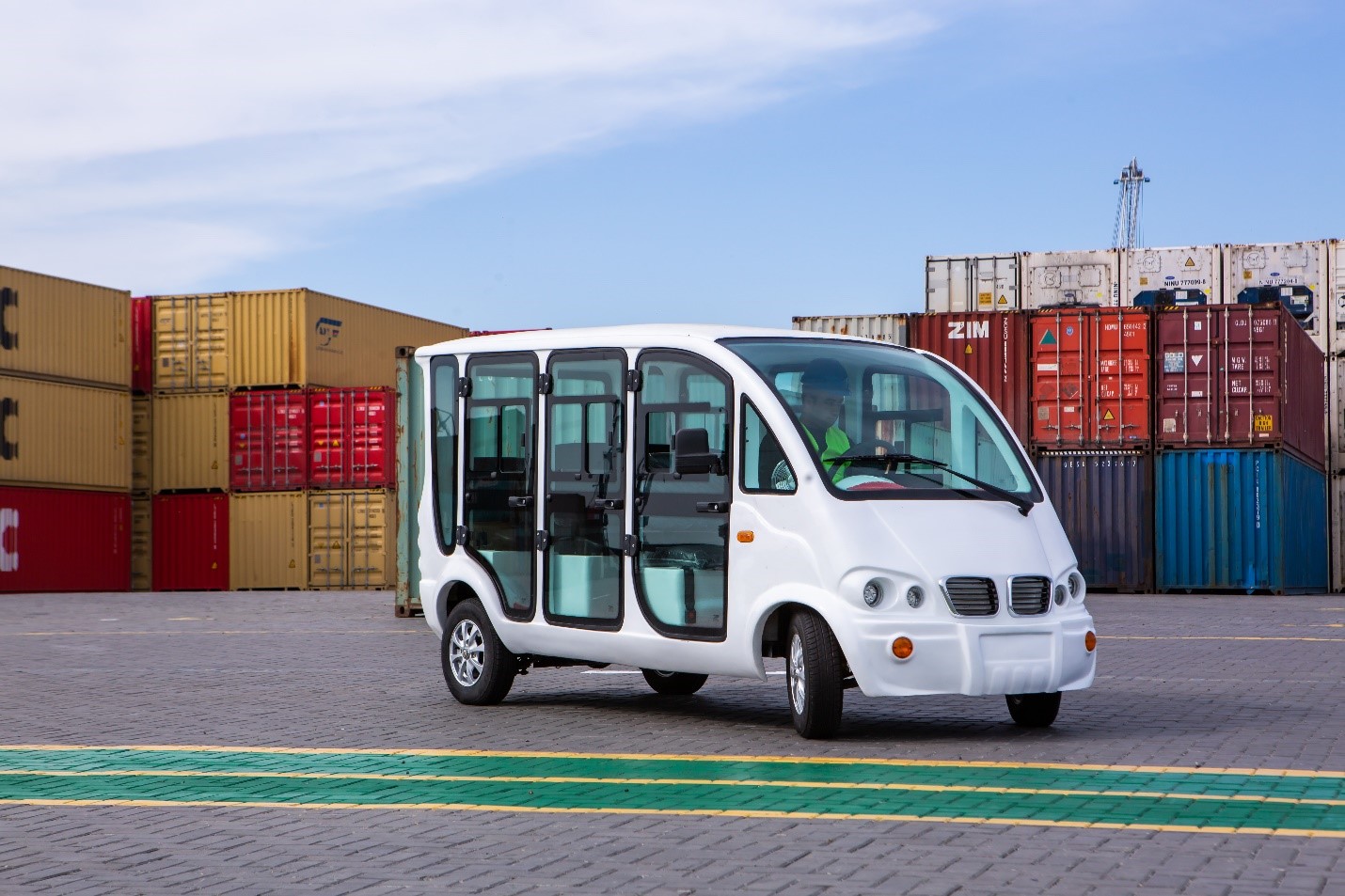Sustainability / Sustainable Development Goals and Report

Port of Baku has contributed to a long-term, sustainable and rapid development, taking as a basis the five National Priorities, reflected in the Decree of President of the Azerbaijan Republic of 2021 on Socio-Economic Development of the country in the next decade. To achieve the Sustainable Development Goals (SDGs), as well as to support the development of a steadily growing competitive economy (the 1st priority), and to become a country with a clean environment and “green growth,” (the 5th priority), a work package has been carried out in the Port of Baku.
In 2022, the Port of Baku started cooperation and exchange of experience within the framework of the Green Voyage Project, initiated by the State Maritime and Port Agency to further strengthen environmental protection. The GreenVoyage 2050 Project aims to promote the application of technological innovations, identified by the initial strategy, that reduce emissions of harmful gases in the marine sector, study experience related to the application of the regulatory innovations in this area, and implement measures towards identifying alternative fuels and energy sources.
As one of the responses to the threat of climate change, the preparation of the National Action Plan on Reduction of GHG Emissions from Ships will contribute to the achievement of the UN’s Sustainable Development Goals in the Azerbaijan Republic, in particular, on taking urgent actions to combat climate change and its impacts (Goal 13), as well as on conserving and sustainably using the oceans, seas and marine resources (Goal 14).
In December 2022, the Port of Baku became a member of the UN Global Compact, which currently brings together 18 seaports and port operators. The decision to join the Port of Baku to the Global Compact was announced in a letter addressed to the Port of Baku by Assistant Secretary-General and Executive Director & CEO of the UN Global Compact Ms. Sanda Ojiambo. In the letter, Ms. Ojiambo congratulated the Port of Baku on its acceptance into the Global Compact, as well as assured of the support of the UN system in the activities of the Port of Baku to contribute to global economy and the SDGs by embracing the universal principle of the UN Global Compact.
As the transport and logistics hub of the region, the Port of Baku does its best to bring its operations in line with the principles of the SDGs, as well as contribute to the global sustainable development strategy by creating sustainable mechanisms for the development of the regional supply chain. The strategic activity of the port is aimed to contribute to 11 of the 17 SDGs. All these activities are already incorporated in its mission statement and action plans.
Prior to joining the UN Global Compact, the Port of Baku’s achievements in the implementation of model solutions for digitalization, operational efficiency and sustainable development had been also endorsed by various prominent international institutions. In particular, the Port of Baku is the first port in the region that has prepared the Zero-Emissions 2035 Climate Change Action Plan (EcoPort). In 2019, the port was awarded the EcoPorts certificate by the European Sea Ports Organization, successfully re-ratified in 2021.
Such green initiatives of the Port of Baku contribute to environmental awareness among the ports of the Caspian Region and help Azerbaijan achieve its SDGs faster. Having joined the UN Global Compact, the Port of Baku is committed to closely cooperate with specialized UN agencies to make international corridors green, resilient and sustainable, as well as determine strategies and activities in these areas. This initiative will create new opportunities for the Port of Baku to strengthen its global connections in the new spectrum.
It is worth noting that, as of today, with more than 14,000 companies in over 160 countries, the UN Global Compact is the world’s largest corporate sustainability initiative. It provides businesses with the opportunity to connect, be represented and gain recognition locally, regionally and globally by expanding their supply chains and actively helping to stimulate innovation and industrial progress.


